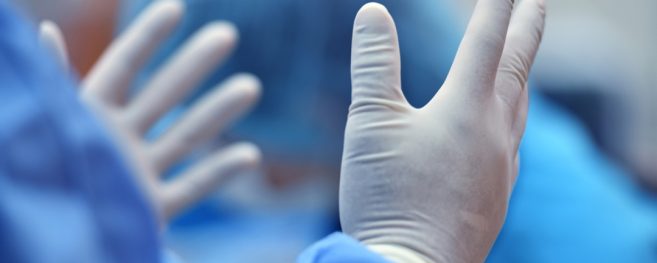Stomach Ulcers and Bariatric Surgery
By: Laura Greaney, MSN
Stomach ulcers deliver a burning sensation in your stomach that is quite painful. There are many factors that can cause a stomach ulcer, and bariatric patients should take extra precaution. Specifically bariatric bypass and sleeve patients. A stomach ulcer is when you have open sores along your stomach lining. When those sores come into contact with your stomach acids, that’s when the irritation and pain occurs. The most common symptoms include abdominal pain or nausea which will most likely subside at meal times but then come back, vomiting of blood and/or having blood in your stools. It should be noted that when taking iron which all bariatric sleeve and bypass patients should be taking, that may also cause darker/black stools. There are several reasons why a stomach ulcer may develop but you can take precautions to prevent them.
It’s been told to you time and time again, not to smoke, don’t do too much coffee, avoid aspirin but you may have never been explained why. Though there are several reasons to avoid those listed we’ll discuss how they contribute to stomach ulcers. First, nicotine effects wound healing. Nicotine will lower the amount of blood flow to injured areas which slows down wound healing. What happens is nicotine decreases special blood cell components that are needed to create new tissue along the staple line after surgery. Smokers are then put at a higher risk to create weaker scar tissue along their staple line. This is one reason some surgeons will not suggest the gastric bypass to former smokers. Second, NSAIDS and aspirin can also cause irritation in the stomach. The point of those medications is to decrease certain hormones or body chemicals that cause pain. However, your stomach lining needs some of those body chemicals to remain healthy. When those substances come into contact with your pouch it can make that stomach lining weaker, specifically in areas already weak like your staple line. Furthermore, the bacteria Helicobacter Pylori, also referred to as H. Pylori, is a bacteria that will increase your likelihood of an ulcer. Most bariatric programs will test for this bacteria prior to surgery so they can properly treat it. Normally this is done by a breath test or a biopsy during an Esophagogastroduodenoscopy (endoscopy). Finally, in our program all bariatric sleeve/bypass patients are instructed to take an acid-reducing medication after surgery. Even if you are not showing signs of reflux the first 30 days, still completely finish your prescription. This will help reduce the amount of acid irritating the new stomach and staple line.
If you were to have an ulcer, then what? The immediate response would be to seek medical assistance. After that, look to modify your dietary habits. There are foods that you should not only avoid to assist in weight loss but also to help decrease ulcer pain. To start, avoid dairy. Dairy actually increases the production of stomach acids. You will also want to avoid caffeine, fatty foods (bacon, mayonnaise), spicy foods, high sugar foods, salty meats, alcohol and processed foods. Going for long periods of time without eating and having an empty stomach can also increase discomfort. Having small, more frequent meals will decrease acid build-up. Finally, there are foods that can help soothe your stomach. Foods that contain flavonoids may have an effect on ulcers. These would include apples and berries. Other foods that help are cabbage, dark leafy greens, asparagus, broccoli and melons. Lastly, aloe vera juice is another product that shows positive signs of healing. The aloe plant has a long history of offering an alternative medicinal approach. It has shown anti-inflammatory components that help to soothe the stomach lining.
Although there are several reasons an ulcer may develop, there are preventative measures you can take to decrease your chances of obtaining one. While stopping smoking or coffee may be difficult it is a warning given to you with a purpose. As medical professionals, it is our job to educate you about things you may not understand. Please review the information given to you to help decrease any pain in your future.
References:
St. Luke’s University Bariatric Services “Ulcers after Weight Loss Surgery” Maureen Miletics RN
The Mayo Clinic











